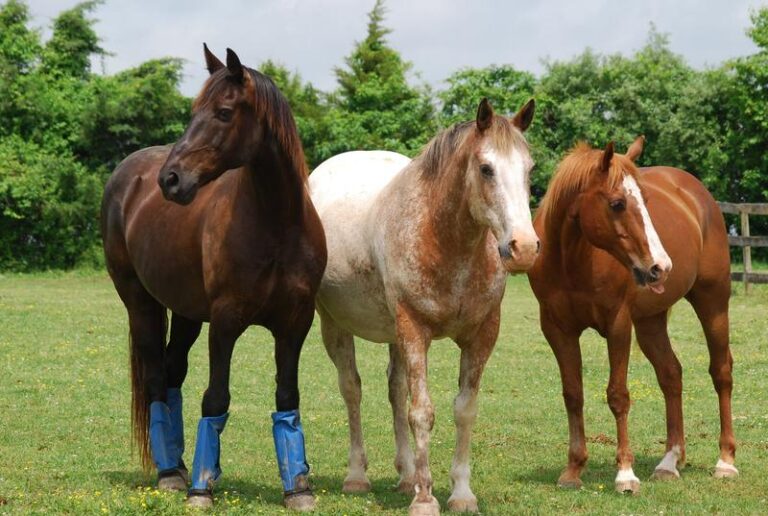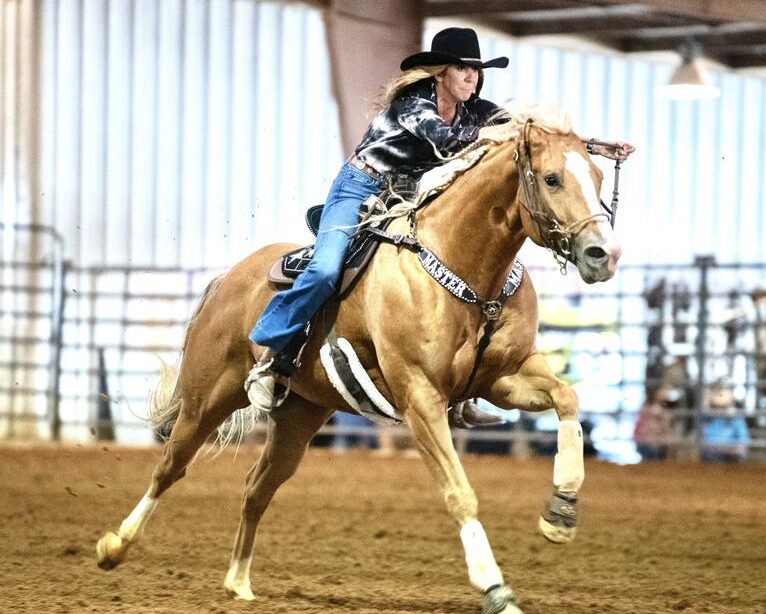
Horse Feed for Performance Horses (Energy, Stamina, Strength)
What is the best horse feed for performance horses? Find out what ingredients set Nutrena® horse feed apart from other horse feed brands on the market and why we provide the best support for your horse’s energy, stamina, and strength.
FAQs About Feeding Performance Horses
If you’re a horse owner trying to keep your performance horse in peak athletic condition, it’s important to read these frequently asked questions about ingredients, diet requirements, and what is guaranteed on your feeding tag. In order to choose the best horse feed for energy, stamina, and strength, you have to know what factors go into performance and how to compare different products on the market.
-
How does Nutrena feed support performance horses differently than other feed brands?
The Nutrena® Brand has several key differentiators for performance horses that you can check for on your feed tags that other performance horse feed brands do not have.
Controlled Starch
First, the Nutrena brand changed the feed industry over 20 years ago with the debut of the original SafeChoice® horse feed, the first-ever controlled starch horse feed to hit the market. Prior to the launch of the original SafeChoice feed, unknown starch and sugar content levels were the norm in the feed industry. While starch and sugar are effective and efficient calorie sources in horse feeds, excess intakes per meal, particularly for starch, can lead to problems in the horse. By “controlling” and setting maximums on the starch and sugar levels, our SafeChoice horse feed provided a new direction in the feed industry and helped reduce the prevalence of digestive concerns for a wide variety of horses.
Digestive Shield
Throughout the years, Nutrena has continued to focus on digestive health by including ingredients such as Pre and Probiotics and organic trace mineral complexes to support a healthy gut. Then in 2023, Nutrena relaunched SafeChoice formulas, being the first feed on the market to offer a complete Digestive Shield™ with Controlled Starch, Pre + Pro +Postbiotics and Calcite to help optimize the entire digestive tract.
Topline Balance
Nutrena also changed the game again through our Topline Balance® Technology, which focuses on amino acid content and balance to build muscle. Ensuring amino acid balance in feed is critical for delivering great appearance, strong recovery from performance, and sound growth and development. With the technology incorporated in our Nutrena products, you can build topline muscling on your horse through the feed you put in the bucket.
In horses, the first three most-limiting amino acids, in order, are Lysine, Methionine and Threonine. Generally speaking, if these three amino acids are present in sufficient quantities, the ingredients used also provide the remaining amino acids in sufficient quantities. Unlike other feed brands on the market, Nutrena Premium Feed guarantees Lysine, Methionine, and Threonine on our feed tags to ensure your horse is getting the correct balance of amino acids in every feeding.
Rebound Technology
Our Rebound Technology was designed with performance horses in mind to support recovery needs with a proprietary blend of research-backed, FDA-approved chromium & branch chain amino acids (BCAAs). Chromium supports optimal glucose uptake in cells, which helps with energy recovery after strenuous exercise. Special amino acids help decrease muscle fatigue and improve muscle recovery by giving muscles exactly what they need. When given proper support, horses enjoy better performance, even with multiple days of strenuous activity. Choose one of the horse feeds from our ProForce line for Rebound Technology and unleash the athlete inside your horse.
-
What are Amino Acids and their role in horse feed?
Protein is made up of amino acids, similar to how a chain is made up of links. There are two basic categories of amino acids: Essential Amino Acids (horses can’t make these, so they need to be provided in feed) and Nonessential Amino Acids (horses naturally make enough of these). In order to fuel, repair, and recover muscle, equine diets must optimally contain a superior amino acid profile, including all 10 of the essential amino acids.
The three most Limiting Essential Amino Acids are Lysine, Methionine, and Threonine. If a horse runs out of these from their feed, they can’t benefit from any other amino acids they’ve eaten.
-
What are three major factors in improving athletic performance in your horse?
When horses exercise, they experience an increased cortisol level, reduced muscle glycogen, increased Serum Amyloid A (normal inflammation), increased heart rate, reduced blood sugar and reduced plasma BCAAs. Three major factors in improving athletic performance in the horse are muscle development, muscle recovery and glycogen availability. Faster glycogen replenishment in the horse could lead to increased muscular performance.
As horses work, ATP or energy enables their muscle fibers to quickly contract and relax. Each muscle cell contains only enough ATP for a few contractions, which means horses must continuously resynthesize ATP during exercise primarily via stored glycogen. The more glucose we can make available to the cells in the performance horse, the better able they are to quickly replenish glycogen. The unique ingredient combination found in Rebound Technology™ optimizes the opportunity for these glycogen and glucose levels to rebound after work.
-
What role does starch and sugar play in your performance horse’s diet?
Starch is a complex chain of sugar molecules, which is the main source of energy for plants. It is stored within the cell walls of the plant and therefore, considered a nonstructural carbohydrate (NSC). Starch in horse feeds are most commonly sourced through grains such as oats, barley, corn, rice or wheat and the co-products of these grains such as corn distillers grains, rice bran or wheat midds.
When ingested, starch molecules are broken down into smaller sugar molecules (glucose) that are readily absorbed. With the help of insulin, the glucose in the bloodstream is ‘picked up’ by muscles and other tissues to either be used to support activity or stored (as glycogen) for future energy needs. Hard working and active horses need glucose and glycogen to support their activity levels and recovery from activity. It’s also worth pointing out that NSC’s are a very efficient pathway to providing energy to the horse and to aid in muscle recovery (glycogen repletion), particularly in horses performing athletic activities.
When consumed in moderate amounts/meals, frequently over time, starch can be a useful and practical source of energy for most horses. Glucose is the key energy source for every cell in the horse’s body and BCAAs stimulate protein synthesis. The proprietary BCAAs and chromium in Rebound Technology™ have been shown to make this key energy source more readily available to the cells of the horse. Rebound Technology™ can be extremely important for the performance horse needing muscle repair and remodeling to rebound in between shows and workouts.
-
What is the benefit of high-fat horse diets for performance horses?
A high-performing horse can have up to twice the calorie requirement as the same horse in a maintenance stage. Owners and trainers of performance horses often give more feed to meet that calorie need. Because horses can use fat as a calorie source efficiently, and fat contains more than double the calories of starch, high-fat horse feeds make perfect sense to increase the energy intake without greatly increasing the quantity of feed needed.
Save with our See the Difference Trial
Recommended Products
-
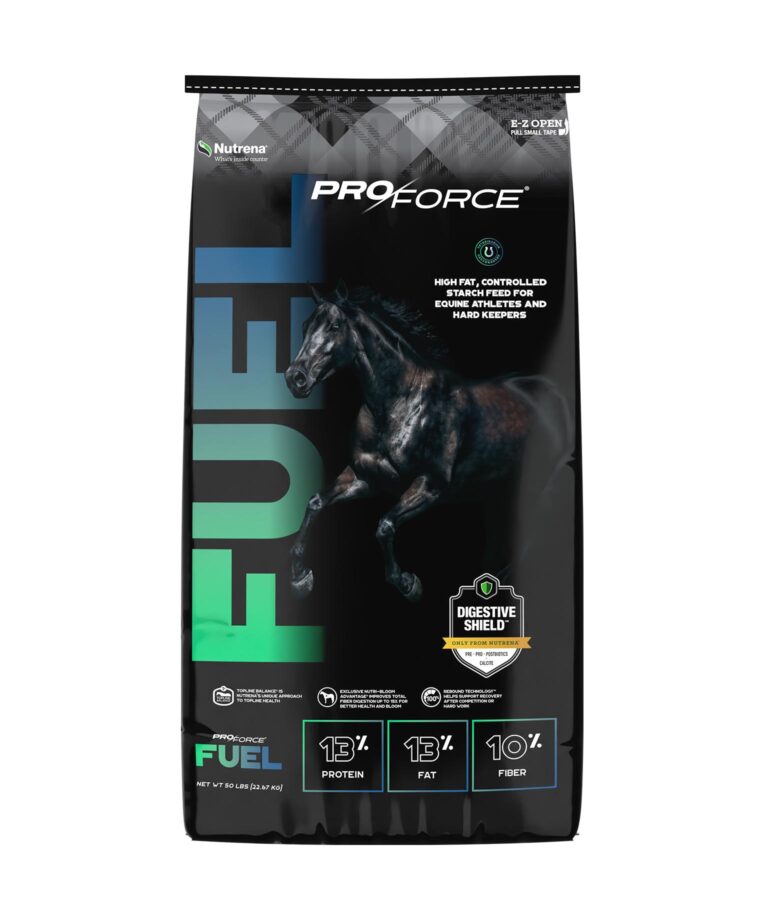 ProForce
ProForce
Fuel
13.0% Crude Protein10.0% Max Crude Fiber13.0% Crude FatHigh fat, controlled starch feed for equine athletes and hard-keepersLearn More -
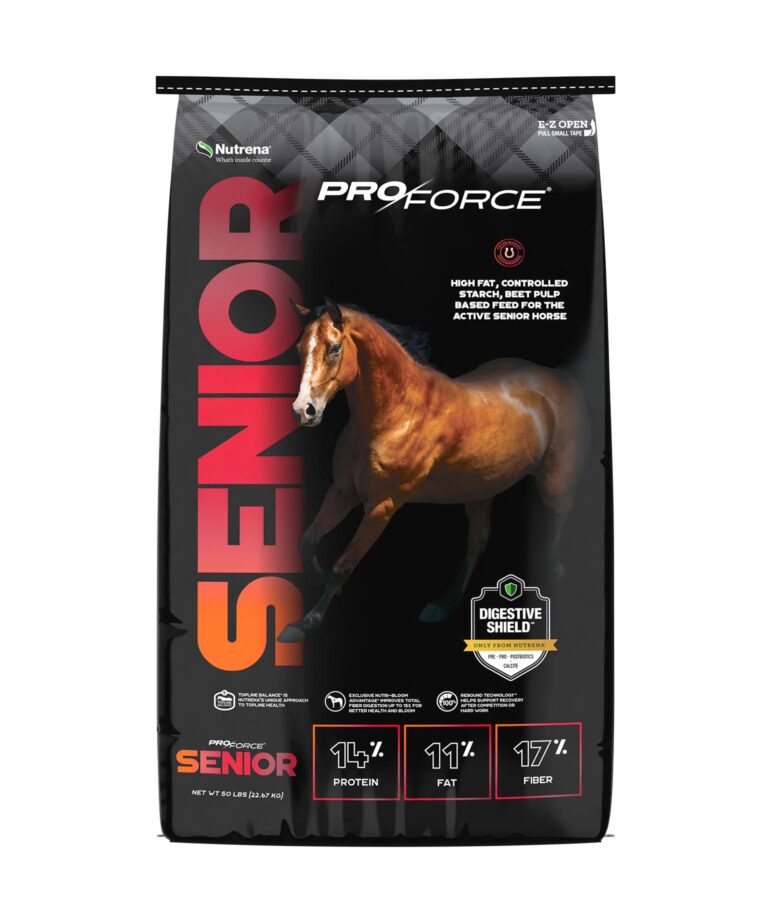 ProForce
ProForce
Senior
14.0% Crude Protein17.0% Max Crude Fiber11.0% Crude FatHigh fat, beet pulp based complete feed for the needs of active senior horsesLearn More -
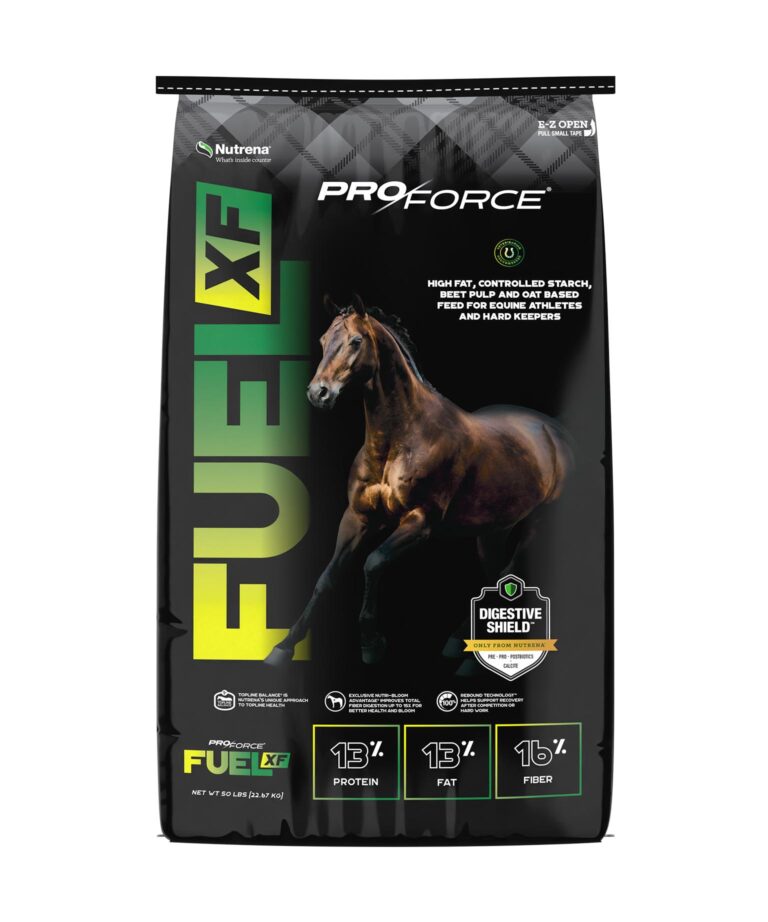 ProForce
ProForce
Fuel XF
13.0% Crude Protein16.0% Max Crude Fiber13.0% Crude FatHigh fat, controlled starch, beet pulp and oat based feed for equine athletes and hard keepersLearn More
Nutrena Athletes
-
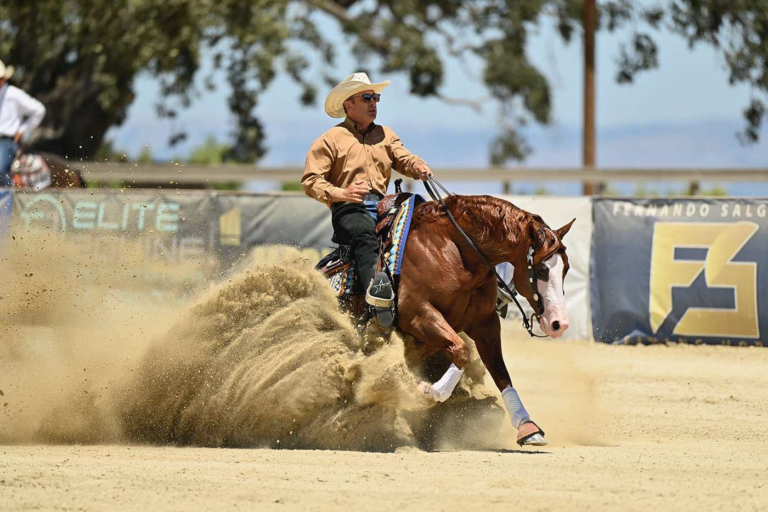
Andrea Fappani, Reined Cow Horse
“Getting to know a horse is all about time spent in the saddle. You’re learning from the minute you step on until the minute you get off.”
-
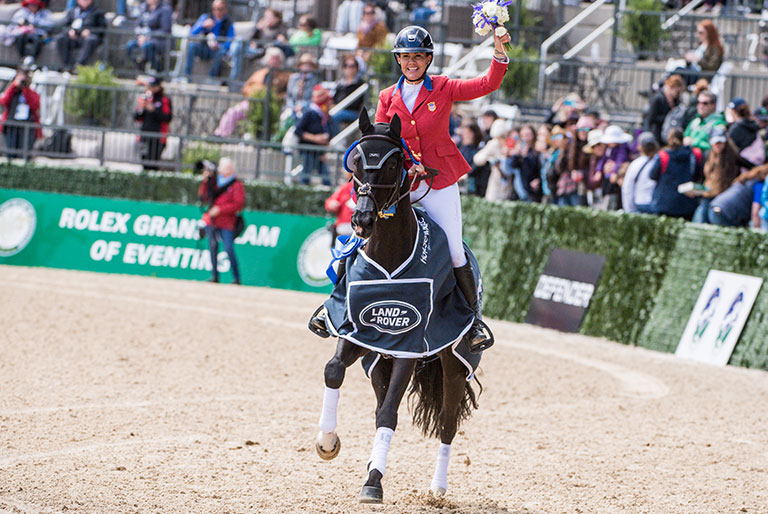
Tamie Smith, Eventing & Dressage
“I feel such a close connection to horses, in an empathetic way. Obviously they can’t speak with their mouths, but they’re nurturing creatures. I find comfort with them. They bring me a special kind of internal peace.”
-
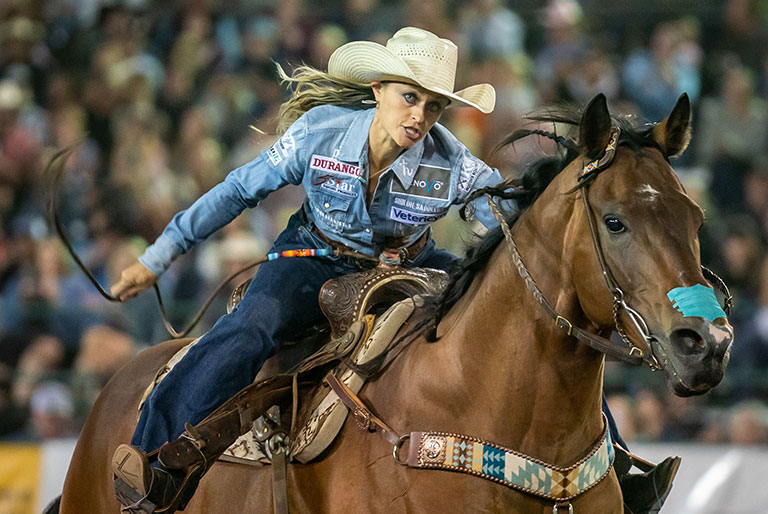
Stevi Hillman, Barrel Racing
“I learn from horses. How they think. How they respond to situations and cues. That’s how they communicate.”
-

Wilhelm Genn, Jumper
“I have fed Nutrena for about 15-20 years and I have always been very happy with the results and the development of the newest products.”
Get a FREE Consultation
Fill out our Contact Us form for an equine nutrition expert to provide 1-on-1 recommendations for your feeding program.
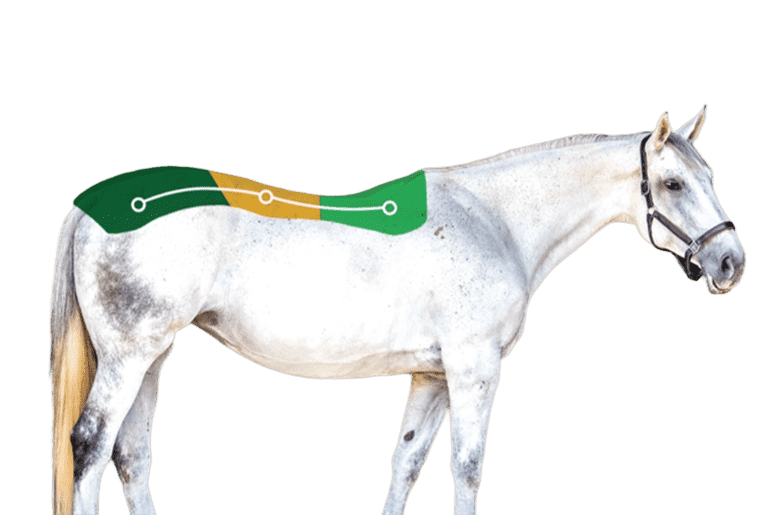
Topline Balance® Technology
Only from Nutrena
Nutrena’s Topline Balance includes a specific amino acid profile to help support healthy topline for proper muscling and core. The SafeChoice® family of feed and our Empower® Topline Balance ration balancer all provide and guarantee three critical amino acids – Lysine, Methionine and Threonine – in levels and ratios designed to impact the topline and entire muscle structure of the horse.
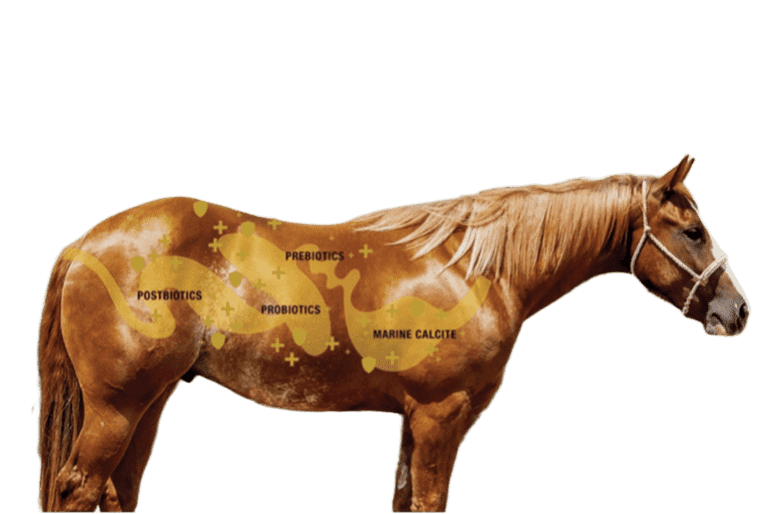
Digestive Shield™
Only from Nutrena
Digestive Shield™ is a new technology, exclusive to the Nutrena® brand, that supports gut health from end-to-end with a unique combination of controlled starch, calcite and pre + pro + postbiotics. Digestive Shield™ is one more way Nutrena® continues to work to promote the health and well-being of horses. Unlike some other horse feed, Nutrena ProForce and Nutrena SafeChoice guarantees pre + pro + postbiotics on our feed tags, so you can support your horse’s immune system and gut health, maintain microbiome and stomach pH, balance digestive system, digestive tract, overall health and performance.
Related Topics
-

Performance Horses and Muscle Recovery
See what happens when performance horses exercise and how you can enhance performance horse recovery with Rebound Technology.
View Blog -
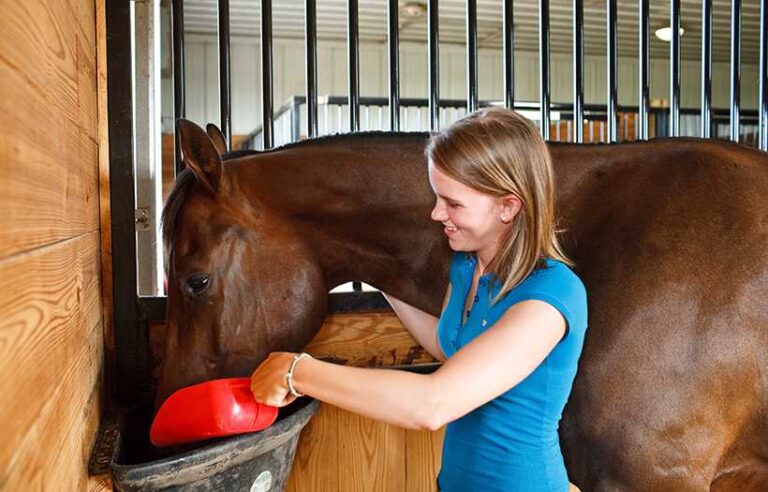
Why are Amino Acids for Horses Important?
In order to fuel, repair, and recover muscle, equine diets must optimally contain a superior amino acid profile, including all 10 of the essential amino acids.
View Blog -

Exercise and its Role in Topline
A common misperception about topline is that it can be improved through exercise alone. Lack of exercise – or the wrong type of exercise is often blamed for a poor topline. Learn what role diet plays.
View Blog -

Using Nutrition to Manage Horses with Gastric Ulcers
Diet goes a long way for managing horses with ulcers. Here are some tips that can help.
View Blog
*Review collected as part of incentivized campaign


